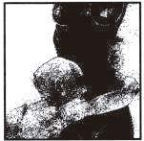Posthistory
DOI:
https://doi.org/10.24275/UKVL8859Keywords:
posthistory , review , Carlos IlladesAbstract
Since the deployment of modernity, whose scenario is the world market and its political horizon the French Revolution, various intellectual projects have tried to present it as the last stage of humanity's historical development. The British historian Perry Anderson exposes in Los fins de la historia (Barcelona, Anagrama, 1996), that Hegel defined as his objective limit the realization of positive freedom under the figure of the modern constitutional State. Antoine-Augustin Cournot saw the principles of mercantile economy, regulated by a rational administration, as the articulating force of collective life, Alexandre Koéve found in the routines of consumption and in the rituals of form the proper components of post-historical existence. These three sources drew water from the discourses on the end of history outlined in the West during the second half of the 20th century which, according to Lutz Niethammer, replaced nineteenth-century historical optimism, inspired by the Enlightenment, and end-of-the-century revolutionary voluntarism.
Downloads
Published
Versions
- 1998-12-01 (3)
- 1998-12-01 (2)
- 2018-11-15 (1)
How to Cite
Issue
Section
License
Copyright (c) 2018 ANUARIO DE ESPACIOS URBANOS, HISTORIA, CULTURA Y DISEÑO

This work is licensed under a Creative Commons Attribution-NonCommercial-ShareAlike 4.0 International License.









